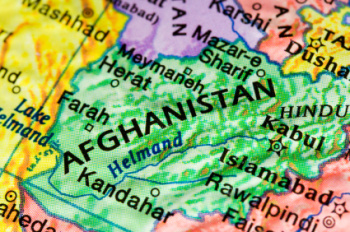When the CIA was carrying out the US assassinations by drone, official statements were the exception, rather than the rule. With that job shifted to the Pentagon, they have to try to justify the killings, and seem to often do so with a form letter claiming whoever they killed was a “specific, imminent threat” to US troops on the ground.
 As the leader of an insurgency the US is at war with, the claim that he poses a threat in general terms is somewhat plausible, though naturally he was not liable to get directly into combat himself. US officials are instead saying Mansour was involved in planning attacks on US targets.
As the leader of an insurgency the US is at war with, the claim that he poses a threat in general terms is somewhat plausible, though naturally he was not liable to get directly into combat himself. US officials are instead saying Mansour was involved in planning attacks on US targets.
In assassinating Mansour, however, the US likely did nothing to foil any attacks, and almost certainly made matters much worse, with top Afghan officials saying they believe that the assassination will directly lead to another surge in violence.
That was the case last year, when Mullah Mansour’s election led to in-fighting among Taliban figures. Though the US initially seemed hopeful this meant a weaker Taliban, in practice it meant two factions trying to out-do one another with high-profile attacks. Whoever succeeds Mansour will likely be obliged to do the same thing in an attempt to establish themselves as a credible leader.
The one thing the US did kill in the drone strike is likely the push to resume the peace talks, which died the day Mullah Omar was declared dead, and which Mansour had to put indefinitely on hold while he established his own leadership.
Pakistan, which got the first talks going, has been under intense pressure to get Mansour to the table, and indications were that they were close to doing so, only for the US to bump off Mansour and start the process over again.
Pakistani officials blasted the US over the attack, saying the assassination, on Pakistani soil, was done without advanced notice. The real problem for Pakistan however is likely to be that the US will be angry at them for “failing” to get peace talks going, when it was the US drone strike that precluded getting the Taliban back to the table.


